(单词翻译:单击)
5.Alcohol Doesn't Help You Sleep Better
5.喝酒不会让我们睡得更好
Alcohol makes a lot of us drowsy, so having a shot or two before you go to bed seems like a logical, tried-and-true way of falling asleep fast. Unfortunately, you actually end up making yourself worse off than you would have been without a drink. Studies that have examined the effects of alcohol on the sleep habits of more than 500 people came up with some disturbing news for those of us who swear by our hot toddies.
喝酒会让我们昏昏欲睡,所以在睡觉前喝一两杯似乎是一种符合逻辑又靠得住的让人更快入睡的办法。但很不幸,相比不喝酒而言,喝了酒之后你的睡眠会更加糟糕。科学家们对500多名志愿者进行研究,以调查酒对睡眠习惯产生的影响。结果对于那些极度相信香甜热酒的人来说是非常不安的消息。
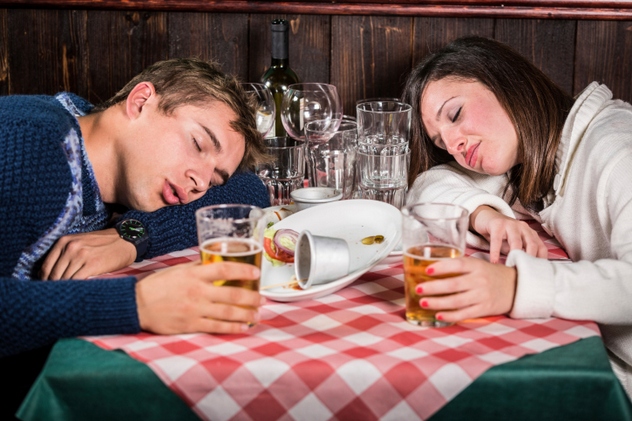
Alcohol will, indeed, make you fall asleep faster and will make your initial sleep much deeper, but the difficulties that come later in the night negate any positive effects you might get from this. REM sleep is greatly reduced with as few as just two drinks. In addition to a greater tendency to wake up more often, those sleepers that do manage to fall into REM sleep are more likely to suffer from nightmares. They are also more likely to keep waking up in the middle of these nightmares. This increases the likelihood of the later part of the night being broken up by some pretty uncomfortable feelings. Women feel this more than men, as their bodies tend to process alcohol faster. Even a drink or two is likely to make you get up and hit the bathroom in the middle of the night. It can also worsen any preexisting conditions like acid reflux, insomnia, and sleep apnea.
喝酒确实能够让你更快入睡,让你在睡眠初级状态时睡得更加深沉,但是之后喝酒带来的困难会把之前你所得到的所有积极效果都统统抵消掉。一两杯酒虽少却会大大减少快速眼动睡眠。除了更有可能时常醒来以外,快速眼动睡眠受损的人还更容易做噩梦。很可能,噩梦之后会常常惊醒,这样后半夜里的宁静就会被这种不安的情绪所打破。女人的反应会比男人更强烈,因为酒精在女人体内吸收得更快。甚至一两杯酒也有可能让你在三更半夜起床上厕所。不仅如此,它还会加重之前的病情,比如胃酸反流,失眠和睡眠呼吸暂停。
4.First Theories Of Sleep
4.睡眠的最早理论
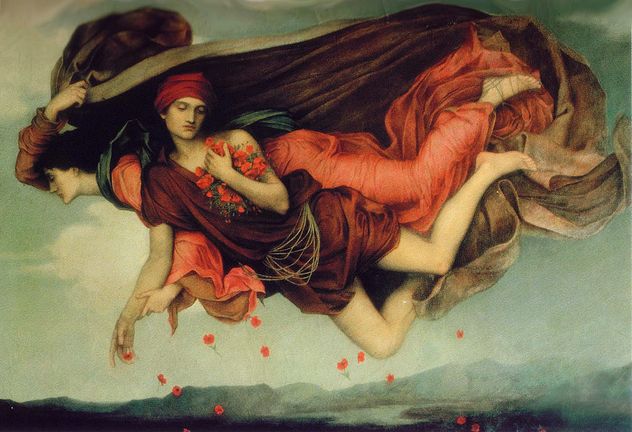
Sleep really is a pretty weird thing. We spend a third of our lives asleep. That's a huge amount of valuable time we could be devoting to other things, like learning, reading, or generally making the world a better place. At a glance, it doesn't seem to have any usefulness, so it's not surprising that early scientists, physicians, and psychologists had a tough time trying to explain just why we fall asleep.
睡眠的确是件怪异的事情。人的一生大约有1/3的时间是在睡眠中度过的。这段大量的宝贵时间我们可以致力于其他事情,比如学习、阅读或者宽泛地说就是让世界变得更好。乍一看,睡眠似乎没有什么用处,所以理所当然早期的科学家、物理学家和心理学家想要解释“为什么我们会睡觉”都感到困难重重。
One of the first theories of sleep comes from the Greek writer Alcmaeon. His theory stated that sleep happened with the flow of blood through the body. As vessels carried blood away from the skin and toward our core, we fell asleep until the flow was reversed. About 100 years after Alcmaeon, Aristotle also took on the question of sleep. He determined that it was the opposite of waking, that it was centered around a person's heart (as this was the center of other types of perceptions), and that it was tied closely to digestion. He hypothesized that the act of digestion would put a person to sleep, and that when it was finished, they would wake. The Greeks had a mythological explanation for sleep, in the form of Hypnos, god of sleep; he lived in Erebos (eternal darkness). Every night, he traveled the land in the company of Nyx (Night) and his brother Thanatos, who was the spirit of peaceful death. In ancient Egypt, sleep was something that people had little control over. When they fell asleep, they were entering a place between the lands of the living and the dead. Dreams and nightmares were the work of spirits, and sometimes sleep was a way for the dead to communicate with the living.
睡眠的最早理论之一出自古希腊作家阿尔克迈翁。他的理论阐明了人在睡觉的时候身体内的血液在流动。血管将血液带离皮肤然后流向身体的核心,直到血液流向逆转我们才陷入沉睡。阿尔克迈翁之后过了100年,亚里士多德开始研究睡眠的问题。他坚持认为睡眠是清醒的相反状态,它集中于人的心脏(因为心脏是人的感觉中心)而且与消化紧密相关。他设想消化的过程可以让人入睡,消化结束之后,人便会醒来。古希腊人对睡眠有一个神学的解释:许普诺斯(睡眠之神)居住在俄瑞波斯(终极的黑暗地狱),每晚,他会在尼克斯(司夜女神)和他的孪生兄弟桑纳托斯(死亡之神)的陪伴下一起旅行。在古埃及,睡眠是人们无法控制的事情。当人们进入梦乡的时候,他们就进入了生死之间的地域。美梦和噩梦都是鬼神的杰作,有时候睡眠也是死人与活人沟通的一种方式。
3.We're Programmed For Two Sleeps
3.我们被设定为两段式睡眠
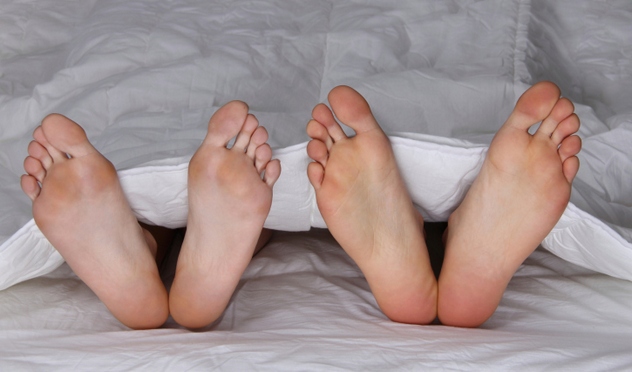
If you're one of those people that just can't sleep through the night, don't worry; not only are you not alone, but you're actually sleeping more correctly than those who insist on uninterrupted eight hours. Up until the 17th century, our sleep pattern as a species looked pretty different: We practiced two sleeps. Between the first (or dead) sleep and the second sleep was a period that we used for some downtime—reading, prayer, even visiting family or neighbors. According to some medieval texts, couples who were trying to conceive had the most luck in between the two sleeps.
如果你是那种不能一觉睡到天亮的人,别担心;你并不孤单,而且事实上你比那些坚持不被打扰睡足八小时的人,睡眠方式更加正确。直到17世纪,作为一个物种,人类的睡眠模式看起来就非常与众不同:我们会有两段式睡眠(在黄昏后先睡两个小时,然后醒来1到2小时,接着再开始第二段睡眠)。在第一次睡眠和第二次睡眠之间是一段我们用以修整的时间——读书、祈祷,甚至是拜访家人或者去邻居家串门。根据一些中世纪的文字资料,在两段睡眠的中间一段时间受孕命中率最高。
Studies have shown that the idea of two sleeps is much more in tune with what our bodies actually want us to do. That's why many of us still wake up in the middle of the night. Other studies have proven that our bodies will, in fact, default to two sleeps. Psychiatrist Thomas Wehr regulated the amount of darkness people were exposed to for a whole month. As a result, the people's natural sleep patterns more closely reflected the two-sleep sequence. So why have we moved away from this more natural way of sleeping? With the advent of electric lights, the amount of light we're exposed to has changed. Also, during the Reformation, the darkest hours of the night became associated with holding secret—and illegal—religious ceremonies. Suddenly, the idea of reading, prayer, and visiting others in the middle of the night turned into something scandalous.
研究显示两段式睡眠更加符合我们身体的节奏。这就是为什么我们很多人半夜还醒着的原因。其他研究证明事实上我们的身体默认为两段式睡眠。心理学家托马斯·维尔进行了一项实验,该实验让一群人连续一个月每天14小时置身于黑暗之中。结果表明,人类的正常睡眠模式更加接近两段式睡眠。那么,为什么我们又舍弃了这个更自然健康的睡眠模式呢?随着电灯的出现,我们暴露在光线下的时间就发生了改变。而且在宗教改革期间,夜晚就和保守秘密——不合法的事件——宗教仪式联系起来。突然之间,在黄昏到夜晚之间读书、祈祷、串门就变成了丑闻。
2.The Moon Can Keep You Awake
2.月亮会让你醒着
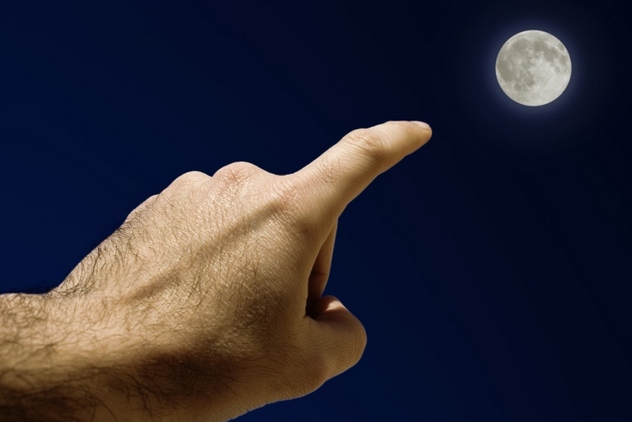
There's all sorts of folklore around the moon, and most of it is just that. However, new studies have shown that while the moon might not make you go crazy, it can make you lose some sleep.
关于月亮各种各样的民间传说不计其数,大多数也就那样。然而,新的研究表明月亮不会让你发疯,但是你会损失一些睡眠。
In a study at the University of Basel, Switzerland, researchers looked at just how soundly volunteers slept during different phases of the moon. It was found that, on average, it took people about five minutes longer to fall asleep during a full moon, and their sleep cycle was shortened by about 20 minutes. There were several controls that had been built into the study. In fact, the participating didn't even know that their sleep patterns were going to be studied. The volunteers were originally part of a different, unrelated study, lasting three years. They have spent periods of between three and five days in a lab, where their sleep patterns were monitored. The collected data was only compared to the moon phases long after the study was complete. Volunteers were also monitored in a closed, laboratory environment and couldn't see the moon. This helps rule out the possibility of brightness keeping them awake longer, and supports the idea that there's something else working on our bodies during the full moon.
在瑞士巴塞尔大学的一项研究中,研究人员在观察不同的月相下志愿者们的酣睡程度。他们发现,一般来说在满月的时候人要多花五分钟的时间才能睡着而且睡眠周期被缩短了二十分钟。研究中对多个环节都进行了控制。事实上,参与者们甚至还不知道人们在研究他们的睡眠模式。志愿者们原本参与的是另外一门不同的、长达三年的、与此毫不相干的研究。他们会在实验室里待上三天到五天的时间,在那里他们的睡眠模式会受到监测。在研究完成很久之后实验收集的数据才会和月相进行对比。不仅如此,研究者们还会把志愿者们放在一个封闭的、看不到月亮的实验环境里进行监控。这样就能排除因为亮光他们才醒得更久的可能性并且进一步支持了在满月的时候有什么东西在我们的身体里起了作用。
1.We're Not Sure Why We Sleep
1.我们还不能断定我们为什么睡觉
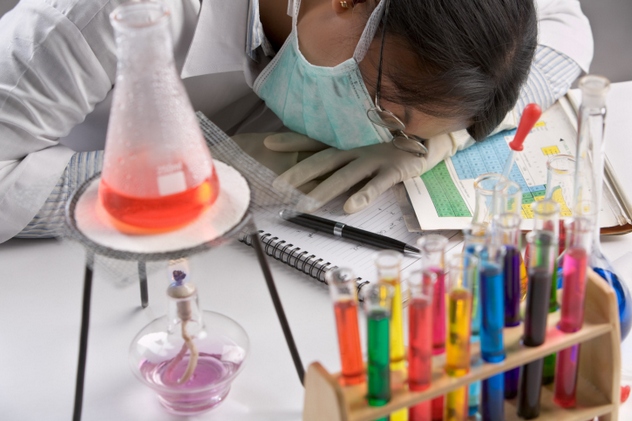
Seems unlikely, right? Yet it's true: We're not all that much closer to discovering exactly why we have to sleep than Alcmaeon and Aristotle were. There are certainly plenty of theories that can be pieced together, but there's no confirmed, big picture of why we sleep. Much of the problem comes from the fact that sleep just isn't practical. Sleep is considered a primal need that our bodies get pretty vocal about when they're missing it. We get hungry when we don't eat, thirsty when we don't drink, and tired when we don't sleep. But what does sleep do for us, aside from make us not tired?
看起来似乎不大可能,对吧?但是这是真的:现在我们对睡眠的研究和探索其实与阿尔克迈翁和亚里士多德差不了多少。当然我们可以把许多理论都拼凑起来,但是没有一个准确、完整的观点来说明为什么我们要睡觉。很多问题都来源于睡眠不具有实用性的事实。人们认为睡眠只是一项基本需求,当身体缺少它的时候就会发出“声音”。我们不吃饭我们就会感到饥饿,我们不喝水我们就会口渴,我们不睡觉我们就会感到疲倦。但是除了消除我们的疲劳之外,睡眠又对我们有什么好处呢?
The inactivity theory and the closely related energy conservation theory state that during the night, it's in our best interest to stay pretty stationary; there are other, bigger things out there that want to eat us, and sleeping means we can conserve our energy. But that also brings up the question of whether or not being completely unaware of our surroundings is the best way to stay safe. Other theories run into the problem of being hard to prove. It's been a long-standing guess that our brains use sleep as a way to reorganize information, to synthesize hormones, or to perform something of a system wipe.One of the most recent theories states that while we sleep, the flow of fluid around our brains increases. This literally performs a physical cleanup of all the debris left behind by the day's thoughts. That doesn't explain the idea of dreams, though; one theory that does explain them is that we need to sleep to give our brains a chance to refresh memories and reinforce what we've learned during the day without using up the brain power we need to run our waking moments. Interestingly, some researchers think that we're asking the question backward. While we're sleeping, we're stationary, we're conserving energy, we're out of harm's way, and we're not likely to hurt ourselves. These researchers argue that a better question to explore is what biological, evolutionary good comes from us being awake.
静止理论和与此紧密相关的能量储存理论阐明了在夜晚的时候我们最好能够保持静止的状态;外面有其他一些更大的存在想要吃掉我们,而睡眠意味着我们能够储蓄能量。但是这又引出了一个新问题:最好的保持安全的方式是完全了解我们的外在环境好呢,还是不完全了解为妙。其他理论则遇到了难以证明的问题。人们常常猜测我们的大脑支配着睡眠,让其成为一种识别信息,合成荷尔蒙或者对系统进行重新组装的方式。最近的一种理论阐明在我们睡觉的时候,我们大脑里的液体流动不断加强。这实际上是对白天信息留下的残骸进行一次身体上的清理。尽管如此,这还是不能解释人为什么会作梦;有一个理论却解释了这一点:我们需要睡觉是因为睡眠可以在不耗尽清醒时所需脑力的前提下,让大脑再次回顾我们的记忆并且巩固我们在白天所学到的东西。有趣的是,一些研究者们认为我们把问题绕回到了原点。我们睡觉的时候,我们是静止的,我们在保存能量,我们远离伤害,我们不可能伤害自己。他们认为值得探索的更好的问题是我们醒来之后会获得什么生理上的、具有革新意义的好处。
翻译:高陈影 来源:前十网


